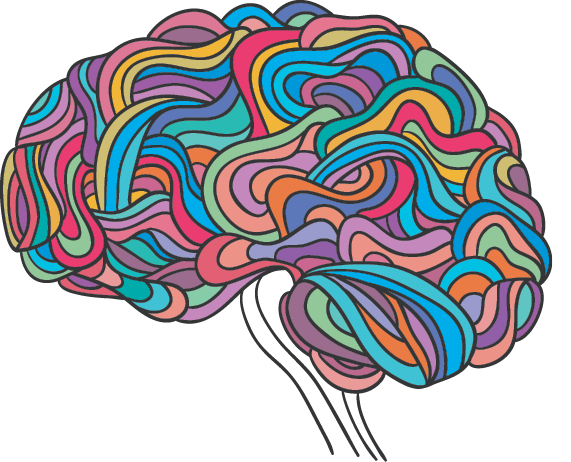More than 25 percent of Americans ages 50 to 73 and 36 percent of those age 74 and over take supplements for brain health. Let’s take a look at what the science says about some popular options.
Ginkgo. A few small, early studies suggested the extract from leaves of the.

Ginkgo biloba tree may slightly improve some symptoms of dementia, but newer studies have shown no effect. The largest clinical trial ever conducted on the effect of Ginkgo supplements on dementia prevention was the Ginkgo Evaluation of Memory Study, published in 2008. This eight-year randomized controlled trial gave 240 milligrams (mg) a day of Ginkgo biloba extract or placebo to more than 3,000 older adults with normal cognitive function or mild cognitive impairment at baseline. There was no significant difference in risk of dementia or Alzheimer’s disease (or progression to dementia if they had mild cognitive impairment) between participants receiving the supplement and those in the placebo group.

Safety: Consuming moderate amounts (120 to 240 mg) of Ginkgo leaf extract appears to be safe for most people. Possible side effects include headache, stomach upset, dizziness, palpitations, constipation, and allergic skin reactions. Ginkgo may interact with anticoagulant medications (blood thinners) and could cause early labor or extra bleeding during delivery if used near the end of pregnancy. Do not consume raw or roasted Ginkgo seeds or unprocessed leaves, as these may be toxic.
The Bottom Line: There’s no conclusive evidence that Ginkgo is helpful for preserving or improving cognitive health.
Omega-3 Fatty Acids. Eating a dietary pattern that includes fish rich in omega-3 fatty acids has been associated with lower risk for cognitive decline. Results from research on supplements, however, have not been promising. The NIH and the Alzheimer’s Association both state there is not sufficient evidence to recommend omega-3 fatty acids to prevent or treat Alzheimer’s disease. A 2020 systematic review and meta-analysis of 38 randomized controlled trials with a total of 49,757 participants concluded that omega-3 fatty acid supplements do not protect older adults from cognitive decline.
Follow these tips when considering supplements with brain health claims: ➧ Be Wary. There is no strong evidence that any supplements on the market can prevent or slow cognitive decline. ➧ Check Labels. If you do choose to try supplements, look for labels that indicate a supplement has been independently tested (by companies like Consumerlabs.com and USP) ➧ Don’t Overdo It. Most over-the-counter brands should contain tolerable doses (although actual content varies). Don’t take more than the dose recommended on the package. ➧ Tell Your Provider. Talk to a health-care provider before starting any supplements, especially if you take blood thinners or medication for diabetes.
Safety: Side effects of over-the-counter supplements (which typically contain 300 to 500 mg of the omega-3 fatty acids EPA and DHA) are generally mild. Fish oil supplements sometimes cause a fishy aftertaste, bad breath, heartburn, nausea, or diarrhea. If you are allergic to fish or shellfish or take anticoagulants, talk to your health-care provider before starting omega-3 supplements. High doses of omega-3 fatty acid supplements (ranging from 1,000 to 4,000 mg a day) have been associated with a significantly increased risk for a common heart rhythm disorder called A-fib.
The Bottom Line: Omega-3 supplements have not been shown to reduce risk for cognitive decline. If you do take supplements, the U.S. Food and Drug Administration (FDA) recommends taking no more than 2 grams (2,000 mg) of omega-3 from over-the-counter supplements daily. Higher doses should not be taken without a prescription.

Turmeric/Curcumin. Curcumin, which gives the spice turmeric its orange-yellow color, shows antioxidant and anti-inflammatory properties in cultured cells, and animal studies have been promising, but human studies have been less certain. A 2021 review that analyzed eight randomized controlled trials including a total of 389 participants (a modest number) found some improvement in working memory, and a possible improvement in brain processing speed, in the curcumin group versus the placebo group, but no significant changes in multiple other cognitive domains. Participants in the curcumin group had a significantly higher risk of side effects, such as gastrointestinal upset and diarrhea, than those in the placebo group.
Safety: Studies support the safety of six grams a day of oral curcumin supplements for four to seven weeks. Some people experience stomach upset, nausea, dizziness, or diarrhea, especially at higher doses. People on anticoagulant drugs (blood thinners) and diabetes medications should not take turmeric or curcumin supplements without consulting their health-care provider. Independent testing found supplements did not always contain the expected level of active compounds.
The Bottom Line: Consuming the spice turmeric or taking turmeric or curcumin supplements has not been shown to prevent cognitive decline or dementia and is currently understudied.
Green Tea. Studies in animals suggest green (and black) tea components could

potentially help with cognitive function. Observational studies that compare people’s reported tea consumption with cognitive function have shown inconsistent results.
An analysis of nine interventional trials comparing green tea powder supplements to placebo found no significant effects on cognitive dysfunction. Other trials providing individual tea components (like catechins and L-theanine) have noted some improvement in specific areas of cognition, but these individual studies have been fairly small and need to be confirmed in larger studies.
Safety: There are no known side effects or risks from drinking up to eight cups of green tea a day. Green tree extract appears to be safe at levels around 1.6 grams a day. The maximum tolerated dose in humans is reported to be 9.9 grams per day. There is some evidence for liver toxicity at high doses.
https://www.nutritionletter.tufts.edu/healthy-eating/recipes/april-fools-day-tofu-scramble/
The Bottom Line: Randomized controlled trials have found green tea powder supplements have no significant effect on cognitive health, and there is no consistent evidence that drinking green tea has cognitive benefits. There is some interesting emerging science on some tea components, and more research is needed. Green tea is perfectly safe to enjoy as part of your daily fluid intake.
While we learn more about potential supplements, general lifestyle choices remain the best way to prevent or slow cognitive decline.
























